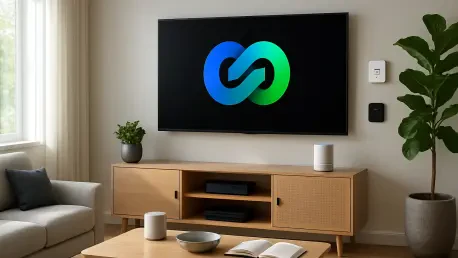Imagine a home where every device not only understands commands but anticipates needs, offering seamless interactions that feel almost human. Google’s latest advancements in smart home technology are turning this vision into reality with the integration of Gemini for Home AI across an expanded lineup of devices. This innovative AI assistant is redefining home automation by enabling more natural communication and intelligent responses. From enhanced security cameras to immersive audio systems, Google’s new offerings, including the Nest Cam Indoor (3rd gen), Nest Cam Outdoor (2nd gen), Nest Doorbell (3rd gen), and Google Home Speaker, showcase a commitment to blending cutting-edge technology with user-friendly design. This development marks a significant leap forward, addressing both convenience and privacy concerns while setting a new standard for what a smart home can achieve. The focus on intuitive features and high-quality hardware underscores Google’s ambition to lead in the ever-evolving landscape of connected living.
Unveiling Advanced Smart Home Devices
Google’s recent unveiling of an expanded range of smart home products highlights a pivotal moment in home automation. The lineup includes the Nest Cam Indoor (3rd gen), Nest Cam Outdoor (2nd gen), Nest Doorbell (3rd gen), and the Google Home Speaker, each integrated with Gemini for Home AI to deliver smarter, more responsive experiences. These devices are engineered to provide not just functionality but a deeper level of interaction, allowing users to engage with their homes in ways that feel instinctive. The cameras and doorbell, for instance, offer 2K HDR video recording with a wide field of view, capturing details with stunning clarity. This enables the AI to detect specific activities and send precise alerts, such as notifying homeowners about a pet’s unexpected movement. Beyond surveillance, the ability to ask natural language questions and receive detailed event summaries with video clips transforms how users monitor and manage their spaces, making security both proactive and personalized.
A closer look at the hardware reveals Google’s emphasis on quality and durability alongside innovation. The Nest cameras and doorbell come equipped with enhanced zoom capabilities and animated preview alerts, ensuring users never miss critical moments. Security is prioritized with encrypted video, two-step verification through Google accounts, and a visible green LED to indicate when devices are active, fostering transparency. An IP65 rating further ensures resilience against dust and light water exposure, making these devices suitable for varied environments. Meanwhile, the Google Home Speaker, with its 360-degree sound and dynamic light ring, offers an immersive audio experience while visually signaling when Gemini is listening or responding. This thoughtful design extends to features like microphone mute toggles and compatibility with other Home and Nest speakers, creating a cohesive ecosystem that enhances both entertainment and everyday convenience for users across different settings.
Seamless AI Integration and User Experience
At the heart of Google’s smart home revolution lies Gemini for Home AI, a system designed to make interactions more intuitive and context-aware. This advanced AI enables devices to understand and respond to natural language queries with remarkable precision, such as providing detailed accounts of specific incidents like a broken vase in the living room. By combining video, audio, and contextual data, the AI creates a multimodal experience that feels less mechanical and more conversational. This capability is particularly evident in how the Nest cameras and doorbell analyze footage to deliver tailored notifications, ensuring users are informed about relevant events without being overwhelmed by irrelevant alerts. The result is a home environment where technology adapts to individual needs, simplifying tasks and enhancing peace of mind through intelligent automation that prioritizes user intent over rote responses.
Beyond functionality, Google’s focus on user-centric design shines through in the thoughtful pricing and availability strategy for these devices. The Nest Cam Indoor (3rd gen) and Nest Cam Outdoor (2nd gen) are priced competitively at $99.99 and $149.99, respectively, while the Nest Doorbell (3rd gen) comes in at $179.99, reflecting a balance of affordability and premium features. The Google Home Speaker, also at $99.99, offers exceptional value with its robust audio and AI capabilities. Availability is strategically planned, with cameras launching in key markets like the US, Canada, and parts of Europe starting October 1, while the speaker rolls out in Spring 2026. This staggered approach allows Google to refine its offerings based on early feedback while expanding reach. Additional features like pairing the speaker with a Google TV streamer for a home theater setup further demonstrate an understanding of diverse consumer needs, bridging security and entertainment in a unified smart home experience.
Shaping the Future of Connected Living
Reflecting on Google’s latest smart home innovations, it’s clear that the integration of Gemini for Home AI marks a turning point in how technology interacts with daily life. The launch of devices like the Nest cameras, doorbell, and Google Home Speaker showcases a blend of high-definition visuals, immersive sound, and intelligent responses that elevate user expectations. Privacy measures, such as encrypted video and visible activity indicators, address critical concerns, while durability ratings ensure long-term reliability. These efforts demonstrate a commitment to creating products that are not only advanced but also accessible, catering to both tech enthusiasts and everyday users who seek smarter ways to manage their homes.
Looking ahead, the path forward involves exploring how these advancements can further evolve to meet emerging needs. Consumers and industry stakeholders alike should consider how multimodal AI can integrate with other technologies to offer even more personalized solutions. Keeping an eye on Google’s rollout phases, especially for products launching in 2026, will provide insights into market adaptations and potential new features. As smart home ecosystems grow, prioritizing user feedback and continuous improvement will be key to maintaining trust and relevance in a competitive landscape. This ongoing dialogue between innovation and practicality promises to redefine connected living for years to come.









